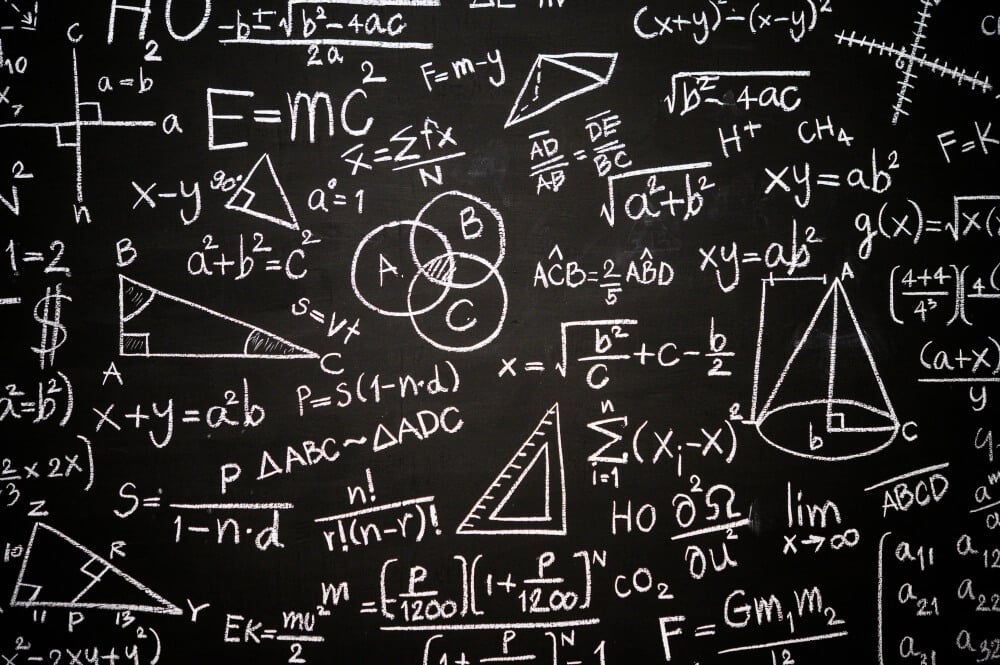Mathematics as a subject is interesting to many students that opt in for it. The varying mathematical principles and formulas, in Algebra, Geometry, Trigonometry and Calculus are interesting as well as challenging. This is the reason why, after the preliminary level as students graduate to higher forms of mathematical calculations, they often find themselves not being able to solve the problems. What previously seemed interesting and positively challenging now seems scary and frustrating when students are totally lost! Is that your scenario too? Did you take up mathematics with an initial adrenaline rush and now have no idea how to go about it? Well, fret not. There are ample ways to get better at the tricks to tackle your mathematical calculations.
Cease the Inner Fear
Though it appears to be just an advice, but it’s a big one! Often when students face umpteen problems in not being able to solve higher calculations, they tend to get afraid. This constant bout of fear generates a thought that they are not good in mathematics or are not meant for that subject. As a result, they quit even before trying. So bidding farewell to this accumulated fear is crucial. And you do it by having a firm inner knowing that:
- No subject including Mathematics is going to be easy in the long run. Each subject has its complication levels.
- Not being able to solve any particular mathematical problem is not the end of the world. It does not prove you are a weak student and that you cannot take up the subject.
- Competing with other students that are excelling presently when you are not will only increase your insecurity levels, thereby making you more afraid about the subject. So aim at knowing your deficiency and tackling them with expert guidance.
- Practice makes everyone perfect. Therefore, get speaking to a teacher that is keen to help or find online guidance, follow the useful inputs you get and keep your practice.
- Quitting is not a solution. Patiently trying and practicing is.
Identify Your Weak Areas
Once you have shed away your fears, start with identifying your weak areas. The way to get started about it is by first outlining your strong areas. For instance, you might be great in geometry and statistics sums, but when it comes to algebra you might find the formulas confusing. So once you know you are good at something, you boost up your confidence and are in a good position to start working on your weak areas.
Once you have identified the weak zone, try and understand the reasons you are weak at it. This helps. Getting to the root of the problem is always beneficial than just knowing about the problem. For instance, if its algebra formulas where you lack expertise, it could be because:
- You did not understand your basic principles of algebra right from the start and due to the fear of embarrassment you didn’t voice up the same.
- Perhaps you missed few classes and did not do anything about it.
- May be you don’t like Algebra as a subject so you don’t spend adequate time to practice the sums properly.
- Perhaps sometime somewhere you’ve heard a senior say that algebra is complex and you formed an opinion on the same. And what follows as a challenge in tacking higher algebra calculations is nothing but just an internal conditioning that needs to be changed.
Head towards the Solution
The best way to do is getting back to the basics. Brush up your fundamental principles and formulas. Know them better this time. Whilst doing so get into a mode of penning down queries and getting them answered as fast as possible. Don’t progress until the query is not answered. You can take help from your teachers, professors or even a fellow student who is willing to help you out. Whilst doing so keep all fears and ego behind. Your main objective is to master the art of solving complicated calculations. Stay focused on that.
Create your Study Plan
When it comes to solving any complex mathematical problem, nothing succeeds like a study plan. So get your pen and paper and draw up a plan. Keep adequate time regularly to address and practice sums that seem challenging to you. Whilst practicing don’t just stick to the ones contained in your text books. Go beyond it. Attempt to solve different question papers. You can source them online or from leading bookstores. After you solve them get it corrected by an expert student or request a teacher for help. Take note of their feedback and work accordingly.
Engage in Group Studies
When done with focus and dedication group studies can be a great source of help. You can’t do everything on your own. So if in a group you divide a set of complex sums, solve it successfully and share it during the group study session, then a lot can be covered within a very less time. You can tutor each other and know from each other tactics used, learn and prepare for your paper and exams in a smart and improved manner.
Maintain a Healthy Routine
Health is wealth and a stable body leads to a stable mind that allows you to tackle mathematical sums better. So sleeps on time, get good sleep, don’t wake up nights, eat healthy meal platters and exercise regularly. Take time out to enjoy your hobby, such as playing cricket, music, reading books, dancing or watching a television program. Stay hydrated by drinking water regularly. Mediate for about 15 minutes every day. This helps in increasing your focus that in turn is beneficial in grasping complex sums better and solving them seamlessly.
